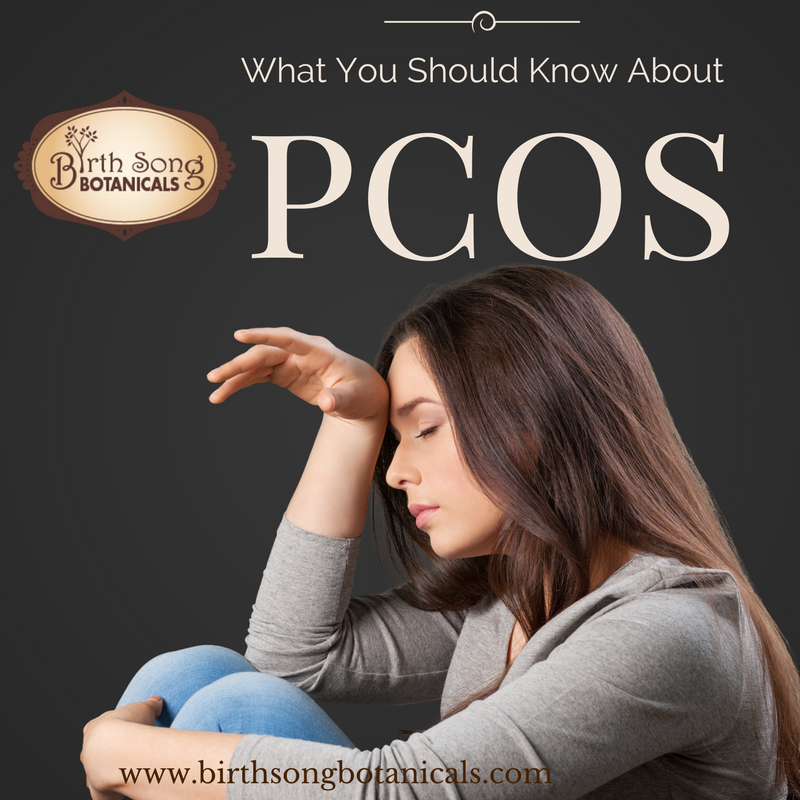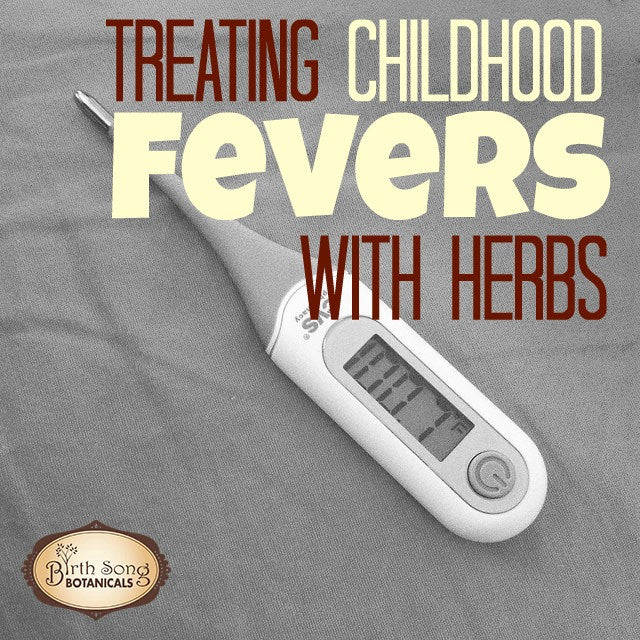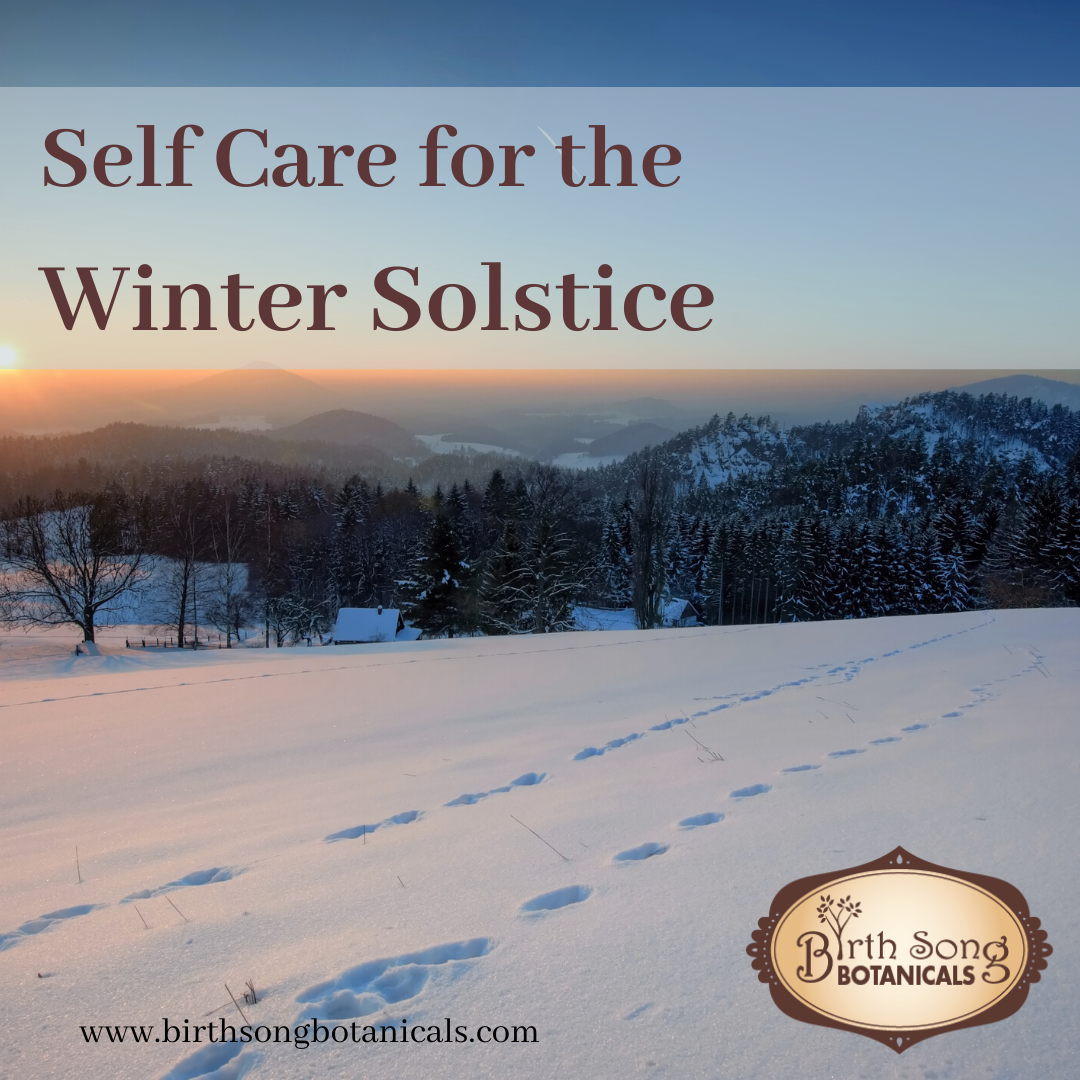What You Should Know About PCOS

Polycystic Ovarian Syndrome (PCOS)
Polycystic ovarian syndrome (PCOS) is so common these days, and it presents with a laundry list of unpleasant symptoms. The good news is there are lots of natural ways to improve and address the symptoms. Recognizing the signs of PCOS requires us to listen to our bodies and acknowledge that something is not quite right. This type of body awareness is essential because over half of the 10,000,000 women and girls who have PCOS are unaware that they even have it. I'm here today to help bring public awareness to this growing concern that modern women are facing. My goal is to help you recognize the messages from your body so you can work to alleviate the unpleasant symptoms and avoid long term health consequences.
Listen on SoundCloud:
Watch on Youtube:
One of the most important lessons we can learn from PCOS is that we, as women, need to foster a healthy relationship with our bodies and learn how to listen to the signals our bodies give us when we are out of balance.
This level of self-awareness requires us to cultivate the art of listening to and knowing our bodies. Understanding how our bodies function when we’re healthy is the foundation of vitality.
We, women tend to deal with our discomforts rather than resolve them; that is why it is so important to cultivate this level of self care.
What is PCOS?
PCOS is an endocrine disorder, where hormones are produced in abnormal fluctuations, leading to irregularities throughout the body. PCOS is defined as: A variable disorder that is marked especially by amenorrhea, hirsutism, obesity, infertility, ovarian enlargement and is usually initiated by an elevated level of luteinizing hormone, androgen, or estrogen which results in an abnormal cycle of gonadotropin release by the pituitary gland —abbreviation PCOS — also called polycystic ovary disease, and polycystic ovary syndrome.
What Are The Symptoms of PCOS?
- Irregular periods that come every few months, not at all, or too frequently
- Extra hair on the face or other parts of the body, called hirsutism (her-suit-is-em)
- Hair loss
- Acne (acne and hirsutism happens from making too much testosterone)
- Skin darkening and skin tags (from high levels of insulin)
- Weight gain or trouble losing weight
- Low breastmilk supply
- Challenges getting pregnant

What Causes PCOS?
PCOS is caused by an imbalance in the hormones (chemical messengers) in your brain and your ovaries. PCOS usually happens when a hormone called LH (from the pituitary gland) or levels of insulin (from the pancreas) are too high, which then causes the ovaries to make extra amounts of testosterone.
The Female Reproductive Anatomy and Hormones
Let's take a brief look at the female reproductive anatomy and hormones.
- The pituitary gland in your brain makes the hormones luteinizing (lu-tin-iz-ing) hormone (LH) and follicle (fall-i-call) stimulating hormone (FSH)
- After getting the signal from the hormones LH and FSH, the ovaries make estrogen and progesterone, the female sex hormones.
- All normal ovaries also make a little bit of the androgen testosterone, a male sex hormone.
- The pancreas is an organ that makes insulin. High levels of insulin can also cause the ovaries to produce higher levels testosterone.

Why do Women with PCOS Have Irregular Menstrual Cycles?

This diagram shows normal menstruation, and you can see that just before ovulation, there is a spike in levels of luteinizing hormone (LH). The problem is that many women with PCOS have high levels of LH throughout their cycle. That means that they aren't getting that spike of LH, so ovulation is not being triggered.
Now, the next problem is that progesterone levels go up after ovulation. Progesterone is produced by the corpus luteum (the left over follicle, after the egg has been released. It is the sharp fall of progesterone that causes us to bleed and start our period. If we were to become pregnant, the progesterone levels would continue to increase to support the pregnancy.
However, if we are not ovulating, we won't have a corpus luteum to produce the progesterone. If we have no progesterone, we are not going to have a period or get pregnant.
There is one more thing to consider. ANDROGENS or testosterone, The American Congress of Obstetricians and Gynecologists, suggest that high levels of testosterone impact ovulation and may prevent an egg from being released.
What is a Period Like with PCOS?
With PCOS, LH levels are often high when the menstrual cycle starts. The levels of LH are also higher than FSH levels.
Because the LH levels are already quite high, there is no LH surge. Without this LH surge, ovulation does not occur, and periods are irregular.
People with PCOS may ovulate occasionally or not at all, so periods may be too close together, or more commonly too far apart. Some people may not get a period at all.

What Does PCOS Do To Your Ovaries?
The term "polycystic ovaries" means that there are lots of tiny cysts, or bumps, inside of the ovaries. Some young women with PCOS have lots of these cysts; others only have a few. Even if you do have lots of them, they're not harmful, and they don't need to be removed. Unless, they are larger than 5 cm, and are causing pain.
Does PCOS Affect Fertility?
Women with PCOS have a normal uterus and healthy eggs. Many women with PCOS can have trouble getting pregnant, but some women have no problem at all. If you're concerned about improving your fertility, consider researching a fertility diet that helps control levels of insulin in your body and learning about herbal supplements that promote ovulation and prepares your body for pregnancy.
Treatments for PCOS Symptoms
The most essential treatment for PCOS is working towards a healthy lifestyle that includes healthy eating and daily exercise.
Your doctor won't have a single test to diagnose PCOS, but will take in account all of your symptoms to create a picture of your health. When communicating with your care provider, be as thorough as possible. They'll consider all your symptoms alongside other factors such as weight, blood pressure, hormone levels, concurrent conditions such as diabetes, and pelvic exams or ultrasounds.
Once PCOS is confirmed, you'll need to consider a treatment path. Most mainstream or conventional medical treatment plans include birth control pills. Even if you're not sexually active, birth control pills may be prescribed because they contain the hormones that your body needs to ovulate. Birth control pills can:
- Correct the hormone imbalance
- Lower the level of testosterone (which will improve acne and lessen hair growth)
- Regulate your menstrual periods
- Prevent an unplanned pregnancy if you are sexually active
Other medications a doctor might prescribe for women who have high levels of insulin or have pre-diabetes or Type 2 diabetes is Metformin. It helps the body lower insulin levels. Many women and girls are treated with both Metformin and birth control pills at the same time for their PCOS symptoms.
While these treatments are sometimes necessary, there are also steps you can take to control symptoms naturally. Remember, PCOS will not go away on its own. Left untreated, the symptoms will be likely to compound into more problematic conditions. For example, while PCOS is not caused by diabetes and vice versa, the two are often connected as metabolic/endocrine disorders. With PCOS left unchecked, risks of diabetes, high blood pressure, elevated cholesterol, heart disease, sleep apnea and depression increase.

Natural Ways to Treat PCOS Symptoms
Remember insulin resistance and hormone regulation are the key factors here. You may be able to manage these factors and ease your symptoms through lifestyle changes, weight loss, and dietary supplements. There's no one-size-fits-all approach to treatment.
Improve Your Diet by Eating Real Food!
It's all about eating real and whole food. Real foods are free from artificial sugars, hormones, and preservatives. Whole foods are as close to their natural, unprocessed state as possible. Fruits, vegetables, dark leafy greens, whole grains, legumes, organic meats and eggs.
- Foods grown without hormones and preservatives are good for your endocrine system can help better regulate your blood sugar and body weight.
- Balance your protein and carbs to improve your hormones and energy levels.
- PCOS is often described as a result of chronic inflammation in the body. Consider eating an anti-inflammatory diet.
Get enough iron by eating dark leafy greens and taking a liquid chlorophyll supplement. Liquid chlorophyll helps the body move lymph, oxygenate the blood, detoxify, and improve iron levels.
Supplements for PCOS
- Cinnamon comes from the bark of cinnamon trees. The cinnamon extract may have to have a positive effect on insulin resistance and may help regulate menstruation for women with PCOS.
- Zinc is a trace element that can boost fertility and your immune system. Excessive or unwanted hair growth and darkening of the skin may be improved with sufficient zinc.
- Vitamin D is essential to your endocrine and immune systems. Women with PCOS are often Vitamin D deficient. Vitamin D may help regulate menstruation and ovulation.
Herbs for PCOS
Herbal remedies for PCOS can usually be administered alongside the protocol your doctor has prescribed, but be sure to make them aware of the herbs you plan to use.

When your body is unable to regulate insulin, it can lead to high levels of male sex hormones called androgens. Adaptogenic herbs support your body to balance these hormones and ease other symptoms of PCOS, like irregular periods.
- Ashwagandha is a well known and long-trusted adaptogenic herb for women's health. It may lower cortisol levels, improve stress, help regulate menstruation, and improve fertility.
- Licorice Root contains an active compound called glycyrrhizin. Licorice Root is a primary herb in Traditional Chinese Medicine (TCM) because of it's wide range of medicinal qualities. For women with PCOS, licorice root is helpful for its anti-inflammatory properties, the ability to help metabolize blood sugar and balance hormones.
- Shatavari is particularly beneficial for women dealing with PCOS due to its powerful adaptogenic and hormonal balancing properties. This Ayurvedic herb helps regulate menstrual cycles and stabilize hormonal fluctuations, addressing one of the core issues of PCOS. Shatavari's ability to enhance insulin sensitivity can also be advantageous, as insulin resistance is often a component of PCOS. Additionally, its anti-inflammatory and antioxidant properties help reduce the chronic inflammation and oxidative stress associated with the condition. By nourishing and rejuvenating the reproductive system, Shatavari supports ovarian health, potentially reducing the formation of ovarian cysts and alleviating symptoms such as irregular periods, acne, and excessive hair growth. Overall, Shatavari offers a holistic approach to managing PCOS, promoting hormonal harmony and enhancing overall reproductive health.
There are several other herbs that we can turn to when PCOS is in the picture.
-
Chaste Berry or Vitex.
Is often called the most incredible herb for women's health. It is loved for how well it helps women with heavy, painful and irregular menstruation. It corrects both excesses and deficiencies in the endocrine system and prepares the reproductive organs for pregnancy and improves fertility.
- Fenugreek is another well-loved herb with a long tradition in women's health. Fenugreek is famous for its ability to increase breastmilk production. One of the significant challenges breastfeeding women face with PCOS is low milk supply. Fenugreek can also help balance hormones and lower blood sugar.
Licorice Root, Vitex, nor Fenugreek are not intended for use during pregnancy.

Gentle Exercise
Maintain a healthy weight with gentle, low impact exercise like walking, swimming, dancing, stretching, yoga, pilates, tai chi, and Qigong. Distance running may also help improve PCOS symptoms too.
Get Good Sleep
Healthy sleep can improve your mood, regulate your menstruation, improve fertility, balance hormones, lower blood sugar, lower blood pressure, increase mental clarity, and improve cardiac health. To support you in having good sleep hygiene, we have several related articles, videos, and herbal supplements all geared to enhance your ability to sleep better.
Reduce Stress
- Meditate for a few moments every day. Soon you will be able to bring your mind to a more peaceful state quicker and with less effort. Follow your breath, relax your body, fill your heart with gratitude. I invite you to listen and follow along with the this guided meditation I recorded for you.
- Massage is another excellent choice, as it not only helps to soothe and relax you during uncomfortable symptoms, but it stimulates the lymphatic system, which is a close partner to the endocrine system.
Stress relief can lower cortisol levels, improve weight, diet, and PCOS symptoms. Many of the strategies mentioned above, gentle movements getting enough sleep, and cutting caffeine, can improve wellbeing and mood. Taking walks outside and creating space in your life for relaxation and self-care can also reduce how stressed you feel. If you feel like stress and anxiety are making your PCOS symptoms worse, please watch our videos to help you feel more solid and serene in your body.

In closing, PCOS is a common, frustrating, and challenging disease, and the symptoms can be addressed with medical treatment, with natural remedies and life-affirming practices. I encourage you to reach out and find other people who are going through the same thing you are and learn from and support each other. Be patient and kind to yourself. Connect with and listen to your female body. She has so much wisdom and information inside her that only you can interpret. Remember, you are not alone in this journey!
Want more? Check these out!
Herbal Products for PMS:
Blog Posts:
- 7 Common Causes of Period Spotting
- How to Enjoy Your Period
- Four Ways to Increase Fertility Naturally
- Herbal Remedies for Heavy Period Bleeding in Perimenopause
- When Will My Menstrual Cycle Return After Having a Baby
- What You Should Know About PCOS
- Tracking Your Cycle: With The Fertility Awareness Method
- How to Plan or Prevent Pregnancy
- Menstrual Cycle Syncing with Moon Phases, Herbs and Qigong
- Harnessing the Power of Mugwort and the Moon
- Balancing Hormones with Seed Cycling
- The Incredible Benefits of Shatavari for Women’s Health
- Yoni Steam- The Sacred Origin, The Herbs, and How To Steam
- Womb Food Eat These Four Foods To Improve Your Uterine Health
- Natural Remedies for Bacterial Vaginosis BV
- Black Cohosh for Hot Flashes in Menopause
- Natural Ways to Boost Testosterone In Women During Perimenopause and Menopause
- Botanica Erotica: Exploring Sensuality and Aphrodisiac Herbs
- Treating a Urinary or Bladder Infection Naturally: An Informative Guide
- A Woman's Guide to Uterine Fibroids
- Herbs for Hot Flashes in Menopause
- St. John's Wort: For First Aid, Nerve Pain, and Mood Support
Remember to:
Like our Birth Song Botanicals Facebook Page
Follow Birth Song Botanicals Co. on Instagram
Read our Birth Song Botanicals Blog
Watch Birth Song Botanicals on Youtube
Listen to Birth Song Botanicals on SoundCloud
Be inspired by Birth Song Botanicals on Pinterest










